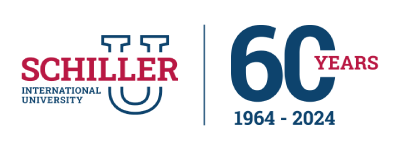We are proud to share today an overview of two interesting research projects participated by our Schiller Paris professor, Dr Albana Canollari-Baze, on the development cycle of adolescents.
Together with colleagues at the University of Tirana, Albania, and the University of Bergen, Norway, Dr. Canollari-Baze conducted unprecedented research exploring dimensions of the Positive Youth Development Framework. Positive Youth Developmental Assets are considered a predictor of life satisfaction, a condition of a healthy life that fulfills a person’s expectations Their fieldwork consisted of exploring the 5 dimensions of PYD, namely Competence, Confidence, Connection, Caring, and Character (known as the 5Cs) with Albanian minority teenagers aged between 14-20 years old. Understanding how Life Purpose is explained by the 5Cs remained their focus throughout the project. In specific, their first paper investigated the 5Cs of PYD for the two most marginalized minority groups in Albania, Roma and Egyptian communities. Data were collected from 201 participants in the three most populated cities with Roma minority (N=100) and Egyptian minority (N=101). An association between the 5Cs and Life Purpose was found. Life Purpose also showed a significant link with PSY dimensions such as Character, Caring, and Connection. In interaction with the 5Cs, Life Purpose provides a framework for systematic behavior in life by motivating adolescents to plan and make efforts to further achieve in decision-making and performance.
A second paper followed offering other interesting results on these two communities. Lower scores on PYD and 5Cs were present in both groups. Analyses revealed that minority groups differed in some PYD Internal and External assets and in some of the 5Cs of PYD. Adolescents from Egyptian teens seem to have a higher level in both assets for these subcategories: Support, Expectations and Boundaries, and Commitment to Learning, compared to Roma. The findings imply lower levels of External and Internal Assets and the 5Cs, especially categories such as Creative use of time, Expectations and boundaries, Commitment to learning, and Positive values. Related to the 5Cs, the lowest levels were for Competence and Connection. To our knowledge, this is the first study focused on Roma and Egyptian minority adolescents on the 5Cs and Internal and External PYD Assets. This study highlighted the need to encourage adolescents to participate actively in various ways in their positive development cycle. The more PYD assets that Roma and Egyptian adolescents have, the healthier life choices they will make, regardless of age, race, gender, or geographic origin.
Recently, Professor Baze became a Global Research Team member for Project: The role of macro-, meso-, and micro-level factors in work addiction and related health problems/ Grant number: 2020/39/D/HS6/00198 (National Science Centre, Poland)[3]. The leaders of this project are Dr. Edyta Charzyńska, University of Silesia in Katowice, Poland, and Dr. Paweł Atroszko, University of Gdańsk, Poland.
Dervishi, E., Canollari-Baze, A., Hysi, F., & Wiium, N. (2022). Las 5Cs de Desarrollo Positivo Juvenil y el Propósito Vital entre Adolescentes de las Minorías Romaní y Egipcia en Albania. Análisis Y Modificación De Conducta, 48(178).
Dervishi.,E., Hysi, F., & Canollari-Baze, A. (2023). “Positive Youth Developmental Assets and 5CS on Roma and Egyptian Minority Adolescents in Albania during Covid-19”. EC Psychology and Psychiatry 12.2 (2023): 01-09.
For more please see: https://workaddiction.org/team/

 Request information
Request information








